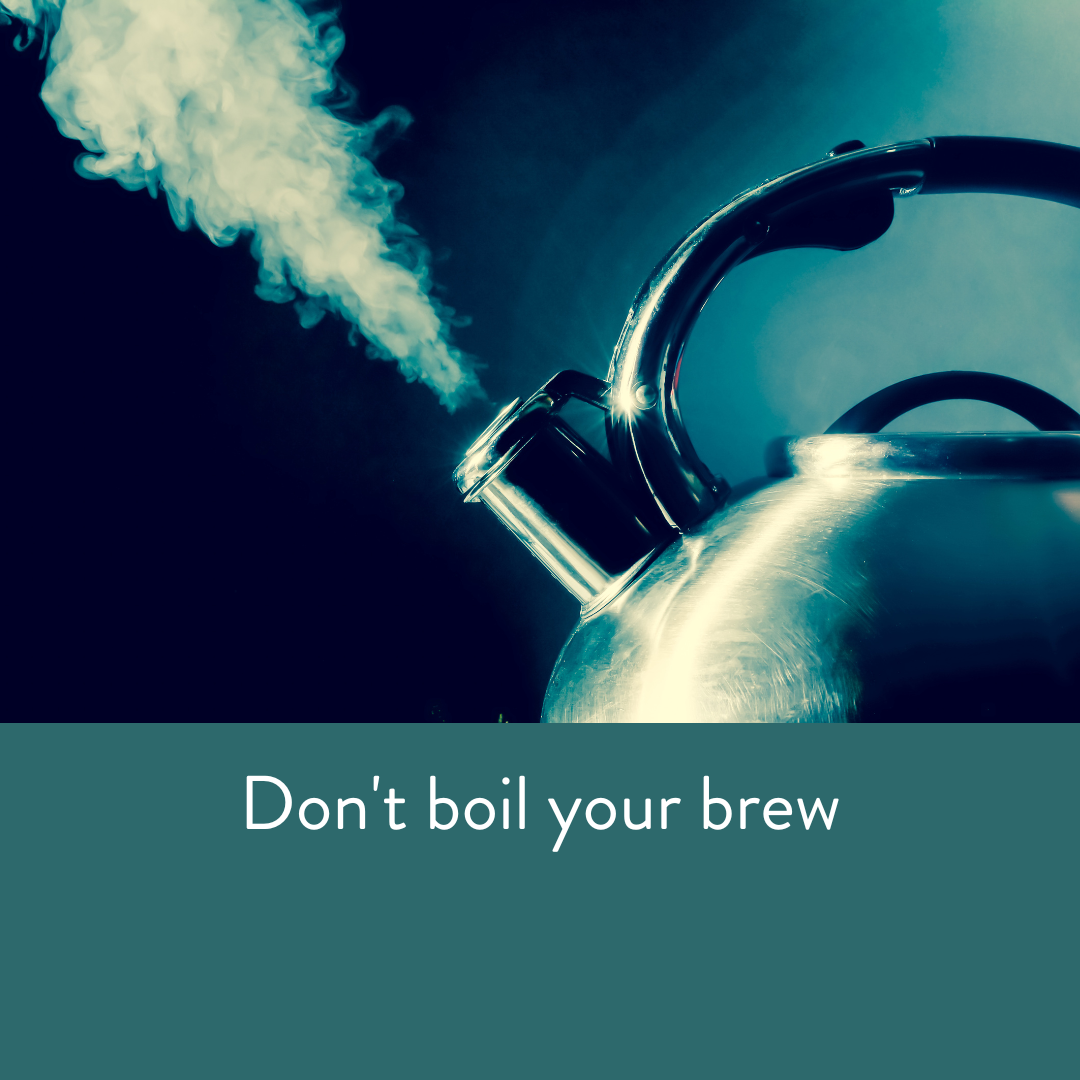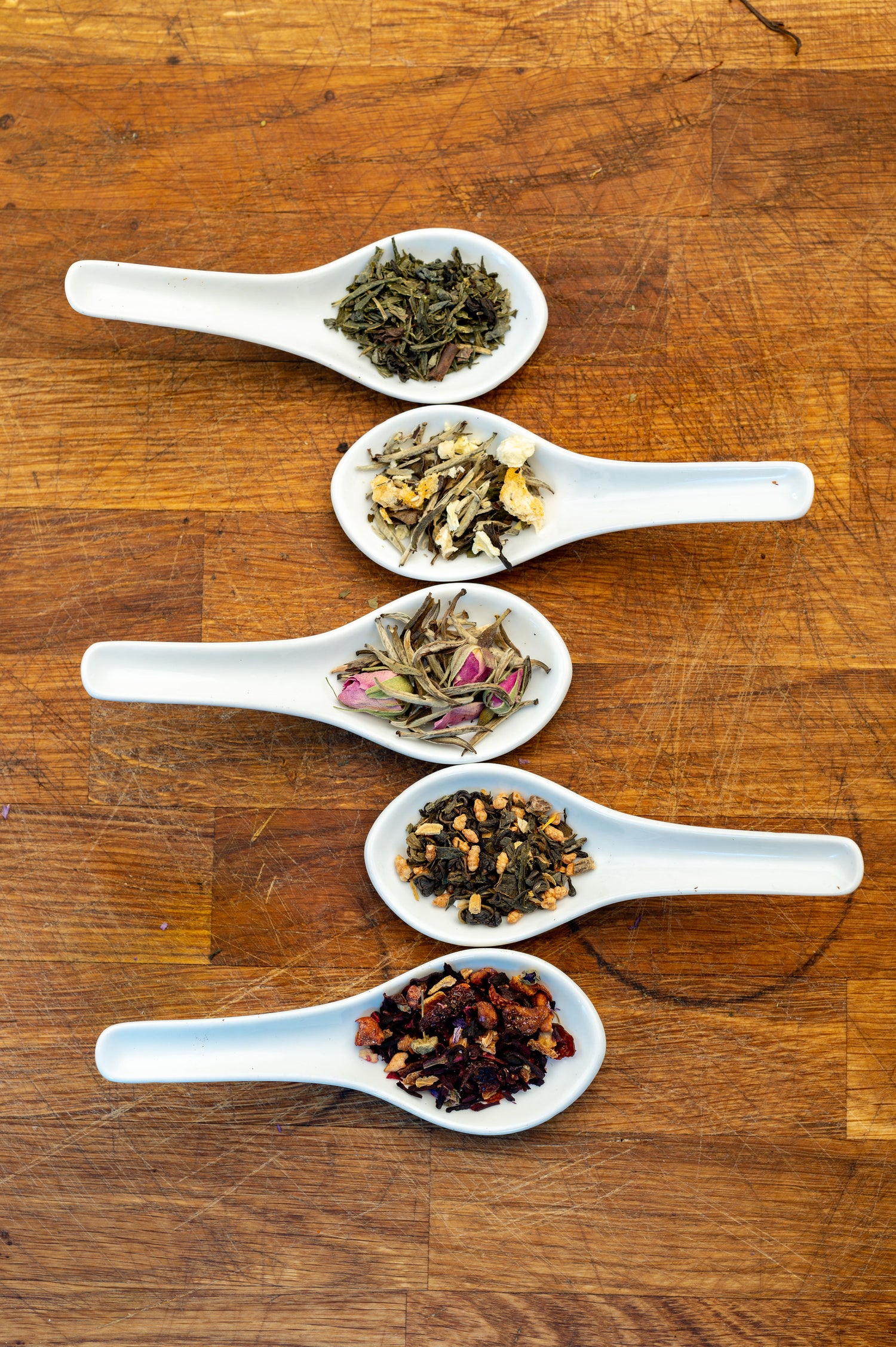Pouring boiling water onto green tea can have a negative impact on its taste, aroma, and overall quality.
Green tea is delicate and requires careful brewing to bring out its best flavours.
Jump to the bottom of this article for tips on how to avoid this misstep. But, if you want to know first just how boiling water can damage green tea, here are six key points:
- Temperature sensitivity: Green tea leaves are more delicate compared to black tea. The ideal temperature for brewing green tea is around 70-82°C (160-180°F). Boiling water, which reaches 100°C (212°F), can scorch the delicate leaves, resulting in a bitter and astringent taste. The high temperature extracts more tannins and catechins, compounds that contribute to bitterness, while diminishing the subtle and nuanced flavours of the tea.
- Oxidation risk: Green tea leaves undergo minimal oxidation during processing, which helps to preserve their natural freshness and vibrant green colour. When boiling water is poured onto green tea, the high temperature can accelerate oxidation, causing the tea to lose its characteristic flavour and colour. Instead of a fresh and grassy taste, the tea may develop a stale or flat flavour profile.
- Loss of volatile compounds: Green tea contains volatile compounds responsible for its unique aroma. When boiling water is used, these volatile compounds evaporate quickly, diminishing the tea's fragrance and reducing the overall sensory experience. Using water that is too hot can deprive you of the opportunity to savour the delicate floral, grassy, or vegetal notes that are characteristic of well-brewed green tea.
- Impact on health benefits: Green tea is renowned for its potential health benefits, which include antioxidants, polyphenols, and catechins that can support cardiovascular health, aid in weight management, and offer other wellness advantages. However, subjecting green tea to boiling water can affect the composition and concentration of these beneficial compounds, potentially diminishing their health-promoting effects.
- Preservation of amino acids: Green tea contains amino acids such as L-theanine, which contribute to its umami and savory flavors. Exposing green tea to boiling water can lead to the degradation of these amino acids, resulting in a loss of the tea's pleasant umami taste. By using water at a lower temperature, you can help preserve the delicate balance of amino acids, enhancing the overall taste experience.
- Avoiding over-extraction: When green tea leaves are steeped in boiling water, they can release more of their components in a shorter amount of time, leading to over-extraction. This can result in a brew that is excessively strong, bitter, and unbalanced. By using water at a lower temperature and carefully monitoring the steeping time, you can achieve a more balanced and nuanced cup of green tea.
Be sure to experiment and explore!
Green tea is incredibly diverse, with various types and varieties available, each with its own unique flavour profiles. By experimenting with different water temperatures and steeping times, you can discover the optimal brewing method for each type of green tea. This allows you to appreciate the subtle nuances and complexities of different teas and tailor your brewing technique to bring out their best qualities.
How to achieve the desired boiling temperature
To achieve the desired water temperature, you can either:
- wait for the boiling water to cool down for a few minutes before pouring it onto the tea leaves; or
- use a temperature-controlled electric kettle that allows you to select the desired temperature; or
- pour a little cold water over the leaves and into the teapot before adding the boiling water, which will protect the leaves from the heat.
Steeping green tea for about 2 to 3 minutes is usually sufficient, but it can vary depending on the specific type of green tea and personal preference.
Elevator pitch?
Pouring boiling water onto green tea can result in a bitter, astringent, and unbalanced brew, while also potentially diminishing its health benefits and delicate flavors.
By using water at a lower temperature, you can preserve the freshness, complexity, and nuanced characteristics of green tea, leading to a more enjoyable and satisfying tea-drinking experience.
Remember to explore different brewing methods and tea varieties to discover your own personal preferences and to fully appreciate the beauty of green tea.
By following proper brewing techniques, you can unlock the full potential of green tea and savour its refreshing taste and health benefits.





1 comment
This was really informative. I realize that I have been doing just what you describing by using boiling water and then having the bitter astringent green tea that I thought was normal. I will try the cold water, followed by boiling water and look for the difference. There’s a lot to learn about T thank you.